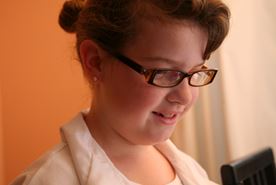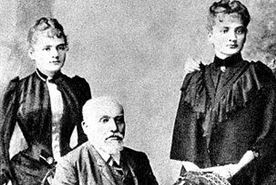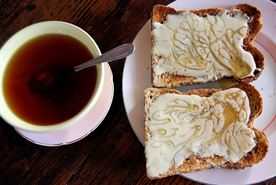YOLA 12A: The Life and Work of Marie Curie - p1
Noun
a powerful and dangerous form of energy
radioactivity
Marie Curie is probably the most famous woman scientist who has ever lived. Born Maria Sklodowska in Poland in 1867, she is famous for her work on radioactivity, and was twice a winner of the Nobel Prize.
Marie Curie is probably the most famous woman scientist who has ever lived. Born Maria Sklodowska in Poland in 1867, she is famous for her work on radioactivity, and was twice a winner of the Nobel Prize.
Adjective
very impressive
prodigious
From childhood, Marie was remarkable for her prodigious memory, and at the age of 16 won a gold medal on completion of her secondary education.
From childhood, Marie was remarkable for her prodigious memory, and at the age of 16 won a gold medal on completion of her secondary education.
Noun
the act of using money to earn more money
investment
Because her father lost his savings through bad investment, Marie then had to take work as a teacher.
Because her father lost his savings through bad investment, Marie then had to take work as a teacher.
Phrase
to have (a particular food) as the only or main food that you eat
lived on
In 1891 this promise was fulfilled and Marie went to Paris and began to study at the Sorbonne (the University of Paris). She often worked far into the night and lived on little more than bread and butter and tea.
In 1891 this promise was fulfilled and Marie went to Paris and began to study at the Sorbonne (the University of Paris). She often worked far into the night and lived on little more than bread and butter and tea.
Noun
sciences that deal with the nature and properties of energy and nonliving matter
physical sciences
She came first in the examination in the physical sciences in 1893, and in 1894 placed 2nd in the examination in mathematical sciences. It was not until the spring of that year that she was introduced to Pierre Curie.
She came first in the examination in the physical sciences in 1893, and in 1894 placed 2nd in the examination in mathematical sciences. It was not until the spring of that year that she was introduced to Pierre Curie.
Noun
a fact or situation that is observed to exist or happen
phenomenon
Their marriage in 1895 marked the start of a partnership that was soon to achieve results of world significance following Henri Becquerel's discovery in 1896 of a new phenomenon, which Marie later called 'radioactivity'.
Their marriage in 1895 marked the start of a partnership that was soon to achieve results of world significance following Henri Becquerel's discovery in 1896 of a new phenomenon, which Marie later called 'radioactivity'.








